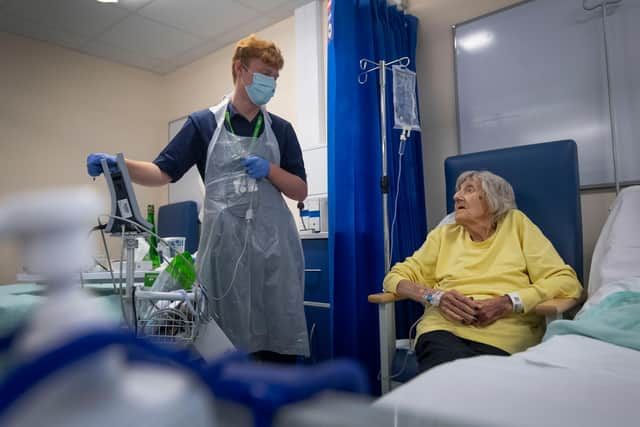Sheffield university report urges councils to invest in technology to support unpaid carers in lockdown
and live on Freeview channel 276
The report by the University of Sheffield and University of Liverpool set out recommendations for councils across the country to look after unpaid carers throughout the ongoing coronavirus pandemic.
Researchers found using digital technologies helped carers become part of communities, helping with their health and wellbeing and being a good source of practical support.
Advertisement
Hide AdAdvertisement
Hide AdIt comes after carers who took part in the ‘Caring during lockdown’ report stated they felt more anxious, fatigued and worried about accessing services, such as those from the NHS or social care.


There are 9.1 million people in the UK who provide unpaid care looking after a family member, friend or partner and this figure was estimated to rise by 4.5 million during lockdown.
Academics from both universities studied data from 118 carers during the first Covid-19 lockdown earlier this year, to explore carers’ experiences through their use of digital technology to stay connected, and access support and services from their local authority.
Participants socialised over Virtual Cuppas hosted by a professional carers coach from carer-run organisation Mobile, to identify the challenges carer-givers faced during lockdown - such as a perceived lack of information and social restrictions impacting their sense of control, with an increased anxiety around access to health services and local authority support.
Advertisement
Hide AdAdvertisement
Hide AdCarers which were also parents also had difficulty finding a work-life balance in the first wave, which over time led to feelings of exhaustion, burnout, social isolation and loneliness.
Dr Matthew Lariviere, a UKRI Innovation Fellow at the University of Sheffield’s Centre for International Research on Care, Labour and Equalities said: “Previous research the University of Sheffield conducted with Carers UK suggested that unpaid carers save the UK economy £132 billion annually in the work they do.
"Therefore it is important that we recognise the value of unpaid carers in our communities.
“With so many carers reporting increasing feelings of social isolation, loneliness, fatigue and burnout during the last lockdown, it is vital we find ways of making the right kinds of support available and accessible to help them through this lockdown, and any other instances of national crisis in the future.”
Advertisement
Hide AdAdvertisement
Hide AdThe report highlighted how carers had reduced stress levels after they came together for virtual face-to-face time, via a digital platform, which helped them find solutions to their problems.
CEO and Co-Founder of Mobilise James Townsend added: "We've been inspired by carers coming together through the Mobilise cuppas to support each other at this acutely difficult time.
"These findings have shown that with rigorous facilitation and the right skillset, online channels can open up a significant opportunity for local authorities to transform their support for carers."
Academics recommended four key ways for local authorities to support carers during a national crisis – such as investing in accessible support when traditional services are restricted and increasing funding in innovations, technology and infrastructures to keep carers connected.
Advertisement
Hide AdAdvertisement
Hide AdThe report also encouraged councils to invest in programmes for digital literacy amongst carers, to ensure they have access to an online community when in crisis and consider how support can be adapted when restrictions ease.